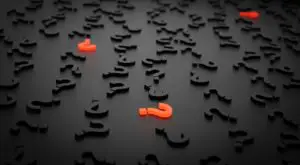
The 5 Best Detective Novels About Addiction
The best detective novels will take hold of you and subtly enlighten you. This might be one of the best ways to discuss drug and alcohol addiction and recovery. Unfortunately, the best detective novels are hardly ever about this theme.
Almost all books (fiction and non-fiction) that deal with the subject of addiction to alcohol and drugs are the ‘inspirational’ type. They’re usually memoirs about an addict or a recovering addict’s journey from addiction to recovery.
Like the best detective novels, the stories start out dark and gritty, and then suddenly, a flashlight is shone at the end of a tunnel. Then everything is all awash with brightness, and everyone must have all these mushy and gooey feelings.
Sadly, this is simply not realistic. True, drug and alcohol addiction can be treated. However, everything does not suddenly become sunshiny and squeaky-clean.
If drug or alcohol addiction has touched your life, perhaps the best detective novels would be the best way to learn about them because romanticism fills you with hope. Here are five of the best detective novels about addiction & recovery from drugs and alcohol:
(5) Dope
by Sara Gran
Dope is a short crime fiction novel set in the 1950s. Joe or Joey, real name Josephine, a former dope addict, is hired by a wealthy couple from Long Island to find their missing, dope-addicted daughter.
The story features Joe’s ramblings and musings as she searches for this girl in the seedy bars of New York, where she encounters the dealers and other characters from her former life.
(4) Blackout: Remembering the Things I Drank to Forget
by Sarah Hepola
Blackout is a memoir but also a mystery. The term ‘blackout’ refers to that terrifying experience when addicts and alcoholics overdose and lose consciousness, and simply cannot recall a chunk of one’s existence.
After sobering up, Hepola starts to reconstruct these missing hours she lost from her bout with alcoholism. She also figures out for herself what these blackouts could possibly mean.
Her partial success at remembering these times means admitting that she was once a needy, self-conscious, and unhinged woman. This story presents this face-off as necessary as she leaves the sidelines on the road to recovery.
(3) Delicious Foods
by James Hannaham
Eddie, the hero of Delicious Foods is first seen struggling to drive a stolen car, quite a dilemma because he has no hands. It is later revealed that his situation was caused by horrible events but what exactly will only be made known at the end of the book.
Delicious Foods is one of the best detective novels, a grandiose undertaking that tackles racism. The story also features Eddie’s mother, Darlene, who is drugged and held captive by a human trafficking ring that just happens to be from a large food chain. Her plight is made even bleaker as she is still grief-stricken by the sudden death of her husband, a black activist.
(2) Poison Girls
by Cheryl L. Reed
Natalie Delaney, a writer for The Chicago Times leads this grim thriller set in Chicago in 2008 during the opioid crisis. She is seen following a story about teenage girls who have taken “poison” heroin laced with fentanyl. This often-lethal combination is blamed for many accidental overdoses. The story bravely tackles the role of the media and the police in the drug crisis.
(1) The Girl on the Train
by Paula Hawkins
Finally, this best detective novel is a page-turner revolving around Rachel. She is an alcoholic, hiding that she lost her job by continuing to ride the commuter train to London every day. When she witnesses a murder, the police reject her story, knowing her drinking problem. Even she cannot trust herself, especially because she has only been paying attention to the victim because she lives near her ex-husband and his new wife and child.
A Message From Our CEO
Medical disclaimer:
Sunshine Behavioral Health strives to help people who are facing substance abuse, addiction, mental health disorders, or a combination of these conditions. It does this by providing compassionate care and evidence-based content that addresses health, treatment, and recovery.
Licensed medical professionals review material we publish on our site. The material is not a substitute for qualified medical diagnoses, treatment, or advice. It should not be used to replace the suggestions of your personal physician or other health care professionals.





